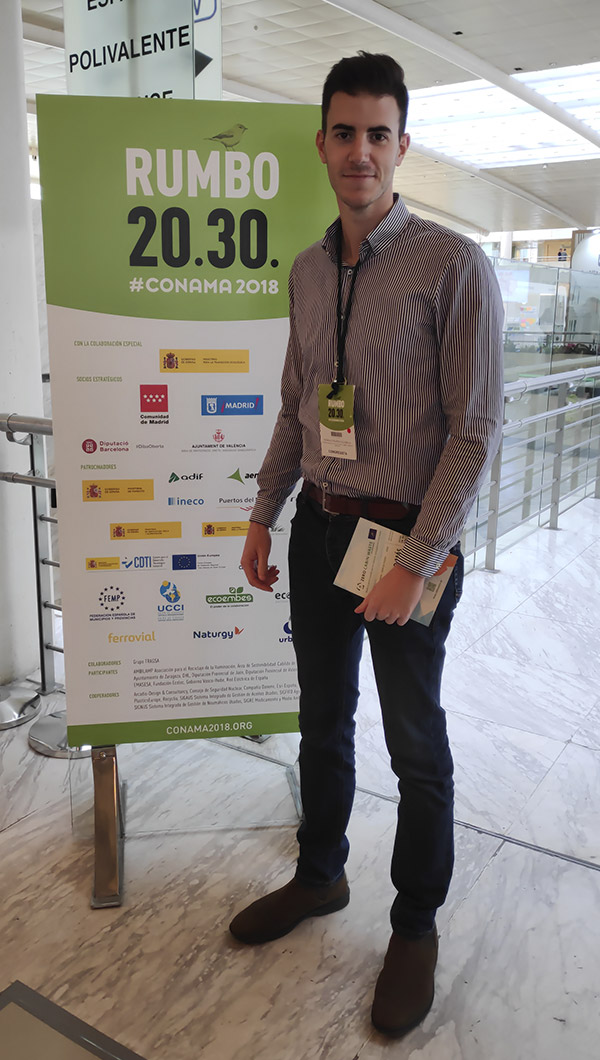The 14th edition of the National Environmental Congress (CONAMA) took place between November 26 and 29, under the slogan “Towards 20.30”, in the Municipal Conference Center of Madrid.
This edition of the congress, held every two years, was intended to promote the accomplishment of the challenges set by the 2030 Agenda for Sustainable Development of the United Nations and the objectives of the European Union for 2020, 2030 and 2050.
The main program covered all the focal points of sustainability, focusing on these 9:
Among more than a hundred technical sessions and activities of dissemination, training and networking, a technical communication written by Gonzalo Blanca, ESCI-UPF researcher, was presented within the framework of the LIFE Zero Cabin Waste Project.
The communication presented was entitled: Is reusable tableware the best option? Analysis for the aviation sector with a Life Cycle Approach.

This is the summary of the technical communication, which exposes some very interesting results regarding the use of single-use tableware in the aviation sector:
Annually, around 7.7 billion passengers travel by plane (ACI, 2017). The menus that are served during the flight, which are quite similar, between the different airlines, are made up of food, packaging and tableware.
To create a more sustainable catering service in flight by applying eco-design measures, it has been performed a LCA. The results have shown that the impacts of reusable and one single use items take place at different stages of their life cycle (79% in the flight phase and 80% in the production phase, respectively).
Variables like material, the weight and the number of reuses influence the gas emissions of greenhouse effect (GHG). The result of this study shows that the lighter single-use items are less harmful under a life cycle perspective. It is recommended to use the LCA methodology for decision-making and legislation development.
